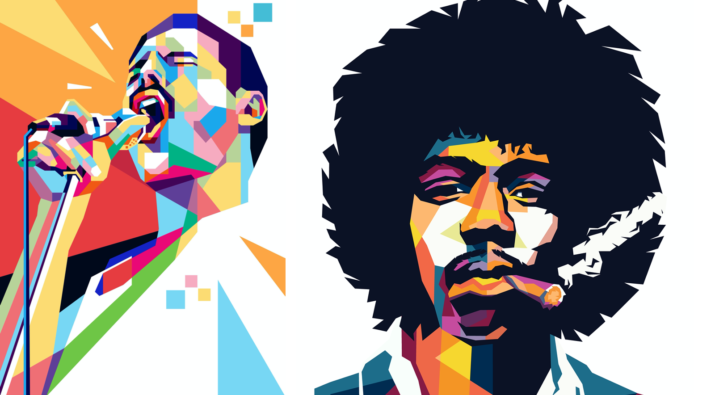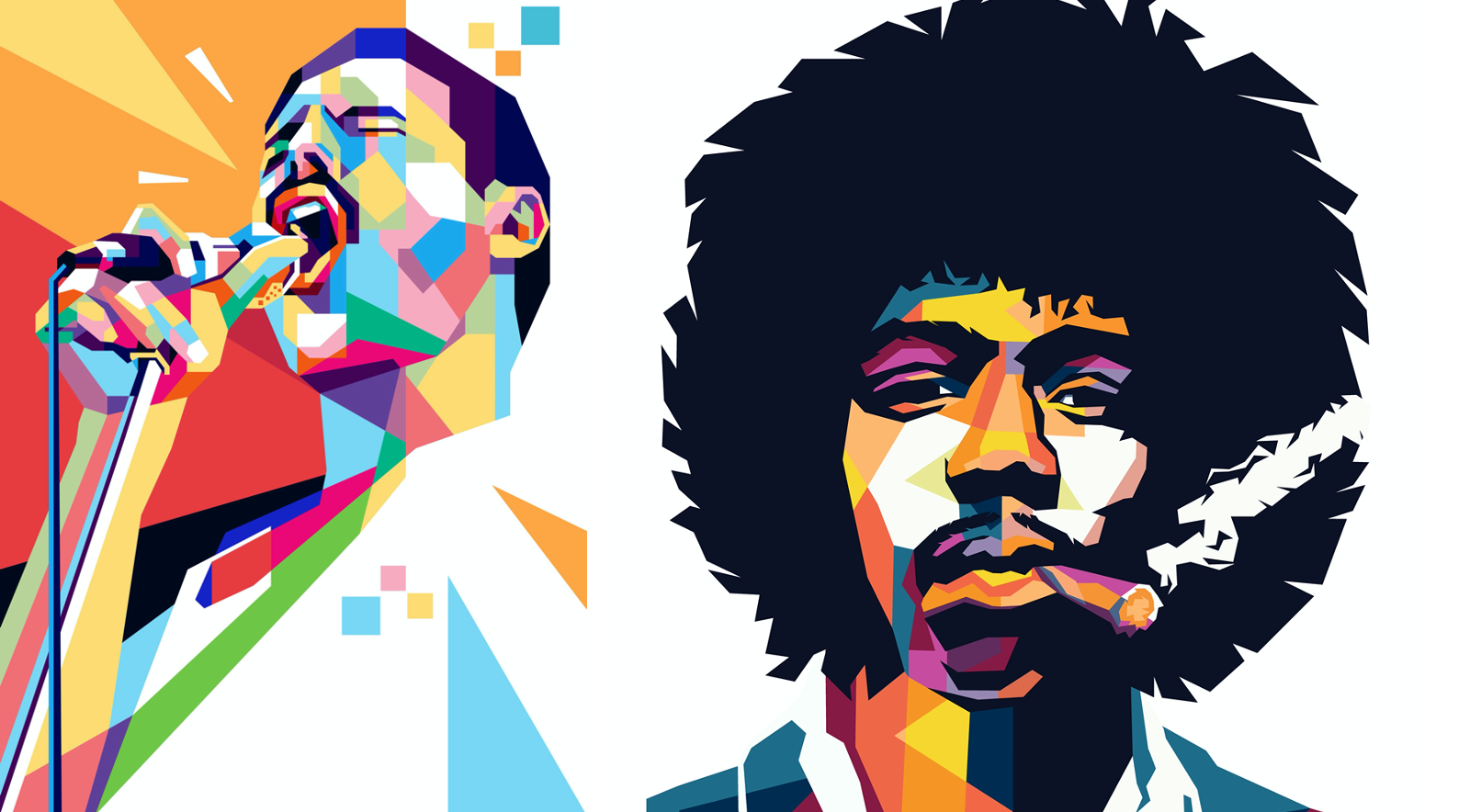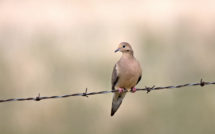
Sounding Home: Music of Migration, Memory, and Exile

This is part of our special feature, Networks of Solidarity During Crisis.
This is part of our Campus Spotlight on Bennington College.
Introduction: There are now more than 270 million migrants across the globe. This course used music to study critical issues of migration beyond statistical analysis and surveys.There are now more than 270 million migrants across the globe. This course used music to study critical issues of migration beyond statistical analysis and surveys. While it served as an introduction to the study of migration for some students, for others it provided an opportunity to look at their existing knowledge through a different lens, one that emphasized interpersonal communication and building community.
Students read avariety of global case studies in ethnomusicology and related fields, connecting musical practices to prominent issues in migration. We studied how music transcribes and preserves the identities, memories, traumas, joys, and hopes of individuals and communities. Because of Bennington College’s commitment to public action, we oriented the course toward activism beyond the classroom, meeting with leaders in arts intervention and developing a musical exchange with the West Hill Refugee Center in nearby Albany, New York. Finally, we studied peacebuilding techniques and applied them to music-making and other performing arts. Our course included undergraduate students from a variety of disciplines and backgrounds, who brought unique and diverse perspectives to our discussions. Although the COVID-19 pandemic disrupted some of our intended outcomes for the course, particularly scheduled concerts and outreach visits to the West Hill Refugee Center, online learning provided unexpected opportunities that enriched the course experience.
Recognizing that the field of migration studies is enormous and complex, we designed this course to prepare students to do research, to investigate their own responses to their findings, and to imagine informed and ethical ways to take action.
Students completed an annotated multimedia playlist as their final project for the course. Their playlist could be about any aspect of music and migration related to the themes and topics of this course. They selected twelve examples that told the migration story of a particular ethnic, religious or linguistic group in ways that showed how musical practices can evolve over time, location, and context. Each entry included one to two substantial paragraphs outlining its significance. Through their musical choices, students were asked to show the social, political, economic, religious, and technological changes that their migrating population experienced. The students prepared a podcast of selections from their playlists, recording themselves introducing each song. Find examples of students’ work below:
Jann Moreno
Tyrone Bass
Suzie Rejali
Noah Bleakley
Lucy Swenson
Coursework:
This course has been designed in three parts:
- Ethnomusicological research on the migration experience through readings, papers, presentations, and in-class music-making
- Peacebuilding activities to investigate our own response to the research
- Engaging with a population of refugees outside the classroom using what we have learned.
Readings and Blog Postings:
You will have assigned reading nearly every class period during the term. Sometimes these assignments will include listening and video. To demonstrate your understanding of the material, you will compose a short blog response on Populi in advance of the class when the readings will be discussed.
Final presentation: We will conduct presentations in the final two class sessions of the semester. Each student will be allotted 20 minutes to give their presentation and answer questions (roughly 15 minutes to present, 5 to answer questions).
The written portion of this project will be completed in stages: individual meeting with instructors to discuss topics; project proposal with list of preliminary resources; annotated entries due periodically throughout the term. By the presentation period, nearly all of the required written work for this project should already be done. Due dates for these tasks will be announced well in advance.
CAPA Consortium Speaker Series:
Throughout the term the Center for the Advancement of Public Action will host a short speaker series on migration issues on Thursday evenings and some Fridays at 12 noon. Attendance is only mandatory for the two music events. All other events are optional, although you are encouraged to participate.
The West Hill Refugee Welcome Center, Albany: https://www.rwcwesthill.com/
We will have a unique opportunity to engage with the West Hill Refugee Welcome Center in Albany throughout the term. West Hill’s population is made up of refugees mostly from Afghanistan, Burma, Sudan, and Syria.
Our goal for this exchange is to look past the labels of “refugee” or “migrant” and get to know individuals of the West Hill community as fellow music lovers and music makers, and to share music from our varied traditions. We hope that our visits will inspire more music-making in this community.
Each visit will involve music-making of one kind or another. Kerry and Joe may lead a workshop in singing or drumming. Bennington students will also have the opportunity to share their own musical abilities and interests with the West Hill community—teaching a song, demonstrating an instrument, talking about a style of music that you really like. We will brainstorm other ideas together as a class.
We also hope the West Hill community will teach us the music of their varied backgrounds during these visits.
***Our trips to West Hill would have culminated with a short daytime event open to the public at The Linda, WAMC’s Performing Arts Studio, https://www.thelinda.org/to show what we learned from each other. Due to the circumstances of COVID-19, we were unable to arrange this performance during the term but hope to in the future.***
In-Class Workshops, Peacebuilding Exercises, Listening, and Music-Making:
Throughout the term, portions of class time will often be devoted to hands-on activities that engage with and enhance the subjects we will be covering. Drumming, folk dancing, group singing, and other activities will enhance our understanding of the music we study. Being present and actively engaging in these activities will be essential to getting the most out of the class.
Schedule of Weekly Coursework
WEEK 1 – Introduction
Questions: Why do people decide to migrate?
The demographics, economics, culture, and music of migration.
Definitions of terms: migrant, refugee, asylum-seeker, stateless person, internally displaced person
Name Origins exercise
WEEK 2
Studies of Music and Migration
- Baily, John and Michael Collyer. 2006. “Introduction: Music and Migration,” Journal of Ethnic and Migration Studies, 32(2):167-182.
- Rice, Timothy. 2014. “Ethnomusicology in Times of Trouble,” Yearbook for Traditional Music, 46:191- 209.
Music and Well-Being Among Refugee and Immigrant Youth
- Marsh, Kathryn. 2015. “Creating bridges: music, play, and well-being in the lives of refugee and immigrant children and young people,” Music Education Research. 19(1):60-73.
Identity exercise: How do we identify ourselves? How do others identify us ? What is lost when someone migrates? How does the identity of “refugee” affect identity and conflict?
WEEK 3
American Migrations 1
- La Chapelle, Peter, 2007. “At the Crossroads of Whiteness: Anti Migrant Activism, Eugenics, and Popular Culture” in Proud to Be an Okie: Cultural Politics, Country Music, and Migration to Southern California. 21-44.
Introduction to Conflict analysis- Afghanistan. Pillars of Conflict, Onion (Positions, Interests, Needs) Guest speaker: Noah Coburn, Anthropology
Woody Guthrie song workshop
American Migrations 2
- Rogin, Michael. 1998. “Nationalism, Blackface, and the Jewish Question” in Blackface, White Noise: Jewish Immigrants in the Hollywood Melting Pot. Oakland, CA: University of California Press.
Film viewing and discussion: The Jazz Singer (1927), starring Al Jolson
WEEK 4
Building Community through Music in Diaspora
- Tallaj, Angelina. 2017. “Dominican Migrants, Plural Identities, and Popular Music,” American Music Review. 46(2).
- Williamson, Emily. 2017. “The Fandango and Shared Music Making Among Mexican Immigrants in the Son Jarocho Community of New York City,” American Music Review. 46(2).
Conflict Analysis: Assignment (Due March 19): Analyse the roots of current or recent conflicts in Syria, Afghanistan, Burma(Myanmar), Sudan. Identify key stakeholders, their positions, interests and needs, and include elements that prolong the conflict using the Pillars of Conflict sheet.
Personal Migration Stories
Your Migration: How and when did you or your family migrate to the USA? What political, economic, or personal conflicts were the catalysts? What music did they bring or reject?
Guest speaker with Consortium for Forced Migration class: Timothy Doherty, Founder, West Hill Refugee Center
WEEK 5
African Diasporic Musics
- Reed, Daniel. 2016. “Introduction,” in Abidjan, U.S.A.: Music, Dance, and Mobility in The Lives of Four Ivorian Immigrants. 3-32.
Neurobiology of Trauma
Understanding the role of trauma in vulnerable populations and how music works to allow the return of normal brain function. Using this information to design music activities with the West Hill group.
WEEK 6
Migration, Race, and Music in Europe
- Gross, Joan, David McMurray, and Ted Swedenburg. 1996. “Arab Noise and Ramadan Nights: Rai, Rap, and Franco-Maghrebi Identities.” in Displacement, diaspora, and geographies of identity, ed. Smadar Lavie and Ted Swedenburg. Durham: Duke University Press.
Listening: selected Algerian Rai examples
- Rollefson, Griffith. 2017. “Hip Hop as Postcolonial Art and Practice” and “J’accuse: Hip Hop’s Postcolonial Politics in Paris,” in Flip the Script: European Hip Hop and the Politics of Postcoloniality. 1-33.
Film viewing: 100% Arabica (1997)
WEEK 7
Music, Refugees, and Conflict in Afghanistan Part 1
- Baily, John. 2005. “So Near, So Far: Kabul’s Music in Exile,” Ethnomusicology Forum 14(2): 213-233.
Film viewing: Rauf and Azim by George Murer.
Conversation with the filmmaker
Film viewing: Angels Are Made of Light (2018) by James Longley
Conversation on Afghan society with Dr. Noah Coburn, Bennington College.
WEEK 8
The Great Migration, Blues, and Buddy Guy
Guy, Buddy. 2013. When I Left Home: My Story. 55-111.
Film viewing: Chicago Blues (1972)
Migrating Ballad Repertories: From the British Isles to New England- The Twa Sisters and a Conversation with Norman Kennedy
WEEK 9
Indigenous Migrations and Musical Activism
Conversation with Dio Ganhdih and Chhoti Maa, two indigenous hip-hop artists and activists
Syrian Refugee Musicians in Istanbul (Part 1)
CAPA Guest Lecturer, Dr. Evrim Hikmet Öğüt, Mimar Sinan University, Istanbul
Film viewing: Sounds Beyond the Border by Evrim Hikmet Öğüt
https://sinirinotesindensesler.org/
Video game: Path Out (2017) by Abdullah Karam
https://causacreations.itch.io/path-out
WEEK 10
Syrian Refugee Musicians in Istanbul (Part 2)
Conversation with Mahdy Alkelany, Syrian hip hop artist; Omar Alkilani, guitarist and member of Mood Band; Owen Harris, activist, scholar, and member of the band Country for Syria; and Evrim Hikmet Öğüt
WEEK 11
Music, Conflict, and Peacebuilding
Guest Presenter, Vahidin Omanovic, Center for Peace Building and Bennington College
Jazz Migrations from the United States to Europe Europe
- Braggs, Rashida. 2016. “Introduction: Migrating Jazz People and Identities,” in Jazz Diasporas: Race, Music, and Migration in Post-World War II Paris. 1-28.
WEEK 12
Caribbean Migrations
- Marshall, Wayne. 2009. “From Musica Negra to Reggaeton Latino: The Cultural Politics of Nation, Migration, and Commercialization,” in Reggaeton. 19-78.
WEEK 13
Final Presentations
Joseph Alpar is a scholar, performer, and educator whose research centers on musical and religious practices in Turkey and former Ottoman territories. He is a visiting faculty member in ethnomusicology and music history at Bennington College. Alpar earned his Ph.D. in ethnomusicology from The Graduate Center, City University of New York in September 2019, having completed a dissertation titled, “Music and Jewish Practice in Contemporary Istanbul: Preserving Heritage, Bending Tradition.” Alpar is an accomplished vocalist and multi-instrumentalist of Turkish, Greek, and Sephardic music and the director of David’s Harp, an acclaimed Middle Eastern music ensemble.
Kerry Ryer-Parke teaches Voice at Bennington College and is an Artist Associate at Williams College. As the Director of the Bennington Children’s Chorus and a performer in many musical styles, she has a particular interest in using music as a tool for peacebuilding and connection.
Published on October 13, 2020.




